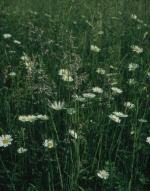|
|
|
 |
 |
 |
 |
GEOBOTANY |
 |
|
|
Geobotany is taught in the following courses of studies:
· Applied Biogeography,
· Applied Environmental Sciences as main and as subsidiary subject and
· Applied Physical Geography and Applied Geography as subsidiary subject.
Studies in Geobotany require basic knowledge of Chemistry, Physics, Mathematics, Soil Science and Climatology.
With final examination in Environmental Sciences, Geography, Biology or other ecologically orientated courses it is possible to obtain a doctorate on natural sciences with a thesis in Geobotany.
In the last years, 40 to 60 students per year attend basic studies and 20 to 30 students per year attended advanced courses in Geobotany (main subject in Biogeography, main or subsidiary subject in Environmental Sciences or Physical Geography).
|
|
|
The main topics of Geobotany are:
· The investigation of dispersal of plant organisms in present and past (spatial analysis of plant species and phytodiversity and their reasons, palaeobotany).
· Vegetation is much more than the local flora. Plant species exist everywhere and always in plant communities, the research object of phytosociology. In plant communities plant species are present (and combined), which are able to exist under the present, recent and past biotic and abiotic conditions. So phytosociology gives us many information about the ecological conditions of current environmental factors.
· This leads to Biomonitoring and environmental assessment on the one hand and on the other hand to ecosystem analysis in particular to their biotic and abiotic interactions as well as quantification of ecological processes like energy and material fluxes and their control.
· In the sum Geobotany offers an important tool to recognize landscapes units with aid of Vegetation, which leads to modern landscape ecology useful for planning purposes and ecological characterisation.
Graduates should be competent in research methods for monitoring natural and anthropogenic influences on vegetation as well as in documentation and in ecological interpretation of such changes and in methods and concepts of nature and environmental conservation respectively management. Therefore courses in Geobotany lay emphasis on plant ecology and phytosociology, specially in application of these research fields in practical nature and environment conservation. This includes knowledge of:
· plant species (flora),
· vegetation types and plant communities
· methods in chemical analysis of plants, soil, water and air,
· methods in ecophysiology
· climatological measurements and evaluation
· statistical methods for evaluation of spatial and temporal datasets
· application of GIS systems for ecological investigations
That’s why the Department of Geobotany offers the following skills in lectures, practical courses and field excursion within the above specified courses of studies at the University Trier:
· Knowledge of regional flora and vegetation
· Dependence of species composition on site factors (vegetation ecology)
· Knowledge and application of ecological indicator functions for Central European plant species
· Applied assessment of vegetation, land use and ecology of landscape units
· Basics and strategies in nature conservation
· Ecosystem processes like eutrophication and acidification
· Conveyance of methods in phytosociology, ecophysiology, biochemistry, analytical chemistry and statistics
· Planning and realisation of phyto-ecological experiments: theory, hypothesis, experimental design and methods of evaluation, choice of measuring or investigation methods, realisation, evaluation, confirmation or rejection of hypothesis
· Promotion of soft skills like teamwork, thinking about transfer between disciplines, thinking in system categories for students and scientists
Career prospects of Graduates are in offices and institutions for landscape planning, nature and environmental conservation, environmental education, as well as in research institutes for ecology.
Head of Department
Prof. Dr. rer. nat. Barbara Ruthsatz
E-Mail:  ruthsatz@uni-trier.de ruthsatz@uni-trier.de
+49 (0)651 201-2393
Staff
Apl. Prof. Dr. rer. nat. Willy Werner
E-Mail:  werner@uni-trier.de werner@uni-trier.de
+49 (0)651 201-2240
Dr. rer. nat. Jörg-W. Zoldan
E-Mail:  zoldanj@uni-trier.de zoldanj@uni-trier.de
+49 (0)651 201-2205
Dipl.-Biol. Simone Klatt
E-Mail:  klatt@uni-trier.de klatt@uni-trier.de
+49 (0)651 201-2248
Dr. rer. nat. Andreas Golisch
E-Mail:  golisch@uni-trier.de golisch@uni-trier.de
+49 (0)651 201-2250
 Homepage Geobotany Homepage Geobotany
|
|
|
|


